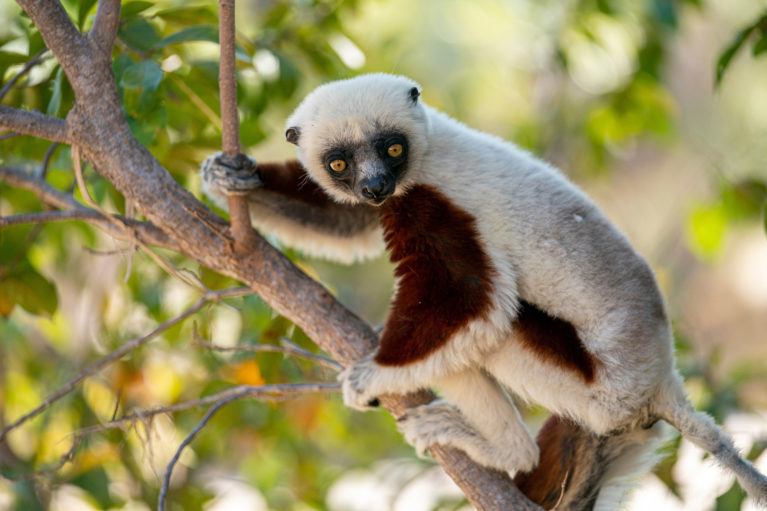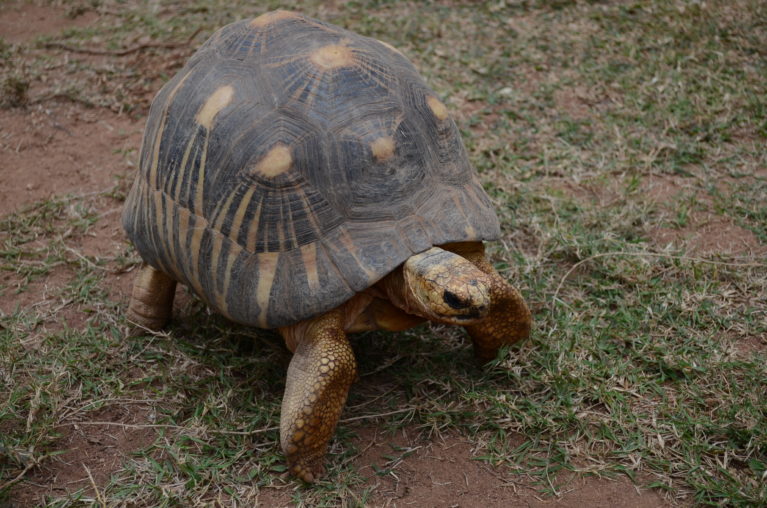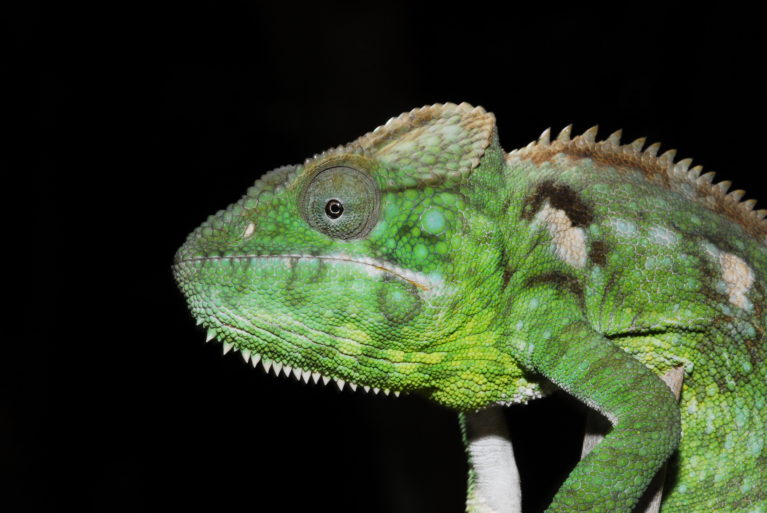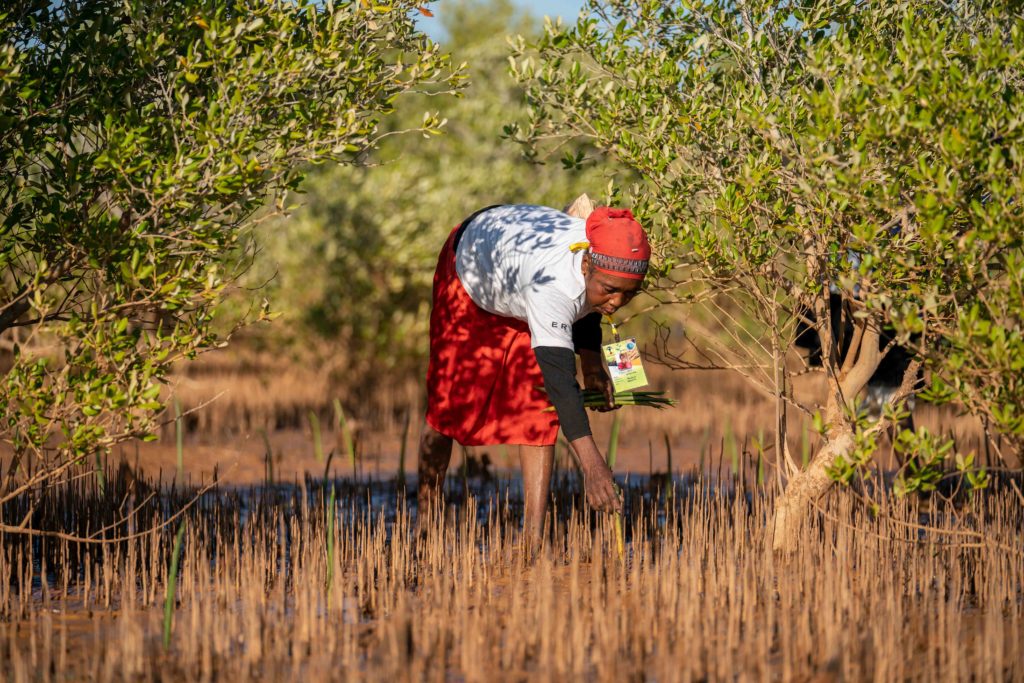Seventy-five percent of species found in Madagascar do not exist anywhere else in the world. Unfortunately, more than ninety percent of Madagascar’s original forests have been destroyed resulting in the displacement of many species of animals. Eden Reforestation Projects restores natural habitats and helps protect some of the endangered species found in Madagascar.
Coquerel’s Sifakas
At least seventeen lemur species have gone extinct since humans arrived on the island of Madagascar. Out of the one hundred eleven known lemur species and subspecies, one hundred five lemur species are critically endangered, endangered, or vulnerable. Coquerel’s sifakas are one of the many lemur species labeled under the endangered category. It is estimated that fifty percent of the Coquerel’s sifakas population has decreased over the past fifty years, primarily as a result of deforestation. As forests are destroyed by slash and burn agriculture, livestock farming, and charcoal production, the Coquerel’s sifakas lose their habitat.

Radiated Tortoises
Radiated tortoises are one of the world’s rarest tortoises. This species naturally resides in the south and southwestern regions of Madagascar. Radiated tortoises are critically endangered due to a loss of habitat, being poached for food, and pet trade exploitation. It is illegal to export and import radiated tortoises as a critically endangered species. However, people still smuggle radiated tortoises out of Madagascar. Recently, Eden Reforestation Projects stopped eight radiated tortoises from being smuggled and nursed them back to health at the Eden Nature Center in Mahajanga.

Chameleons
There are over 150 species of chameleons. Two-thirds of all of these chameleon species are endemic to Madagascar and over fifty percent of them are threatened with extinction. The Belalanda chameleon, bizarre-nosed chameleon, and Namoroka leaf chameleon are three examples of chameleon species that are critically endangered. Deforestation and pet trade are the primary reasons the chameleon population is declining. To prevent chameleons from becoming extinct, protection of the species and their habitat is critical.

Protecting Endangered Species
As poaching and deforestation continue, the risk of extinction increases for all of the species in Madagascar. Eden Reforestation Projects is taking action to protect and restore natural habitats through their Employ-to-Plant methodology. They have hired hundreds of local villagers in Madagascar to restore their forests by planting trees. To this day, over 309 million trees have been planted in Madagascar, and thousands more are being planted every day. Eden Reforestation Projects is partnered with two National Park systems in Madagascar to reforest and revive endangered species’ natural habitat. The projects ’ restoration efforts are bringing back the forests and creating a haven for many of the endangered species in Madagascar.
Eden Reforestation Projects further protects endangered and vulnerable species through the Eden Nature Center. Some of these species include the aye-aye, the flat-tailed spider tortoise, the fossa, the madagascan flying fox and the madagascar sea-eagle. Employees of Eden Reforestation Projects safely retrieve species that are in danger due to smuggling, poaching, injuries, and more. At the Eden Nature Center, species are nursed back to health and are protected from further harm. These species are either released back into their natural habitat or within the Nature Center’s forest to continue wildlife conservation efforts.
